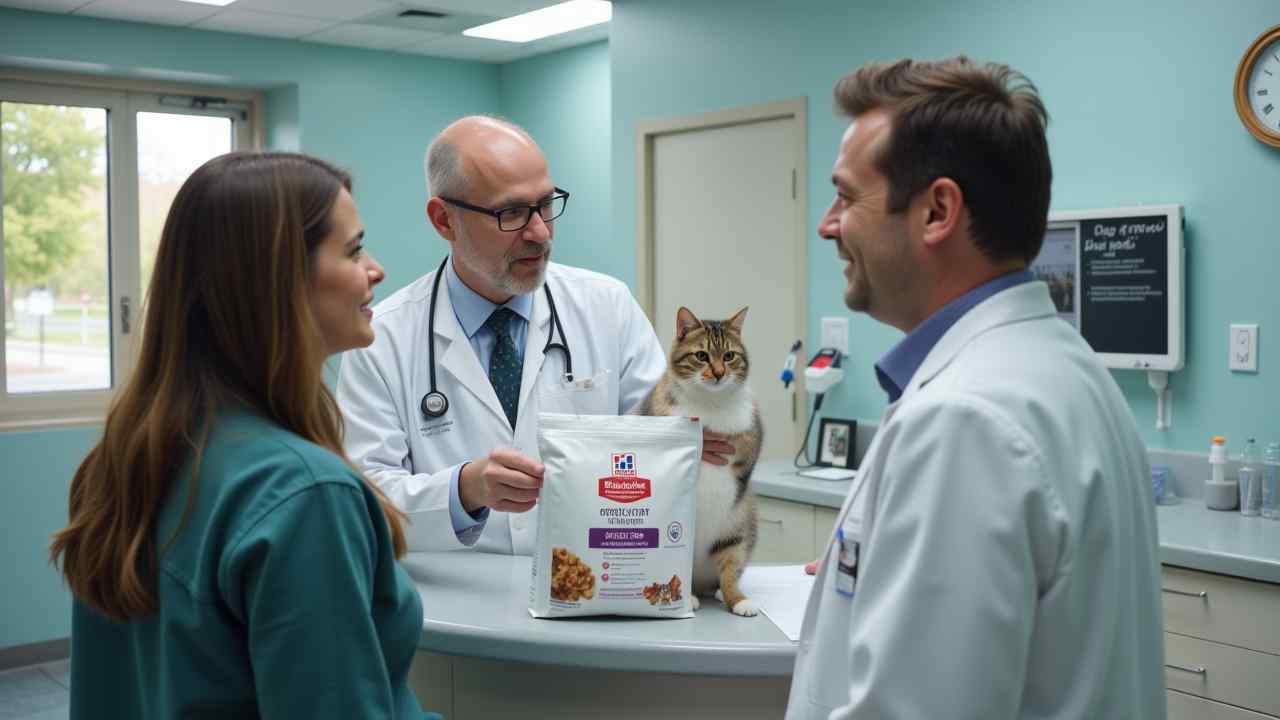
🩺 A Vet's Guide to Hill's Prescription Diet Cat Food
🩺 A Guide to Hill's Prescription Diet Cat Food (Veterinary Nutrition) 🩺
❗ CRITICAL VETERINARY INFORMATION: Hill's Prescription Diet is a line of therapeutic pet foods. These are formulated to manage specific medical conditions. They are considered a form of treatment and must only be used under the direct recommendation and supervision of a licensed veterinarian. Using the wrong formula can be ineffective or even harmful to your pet.
If your cat has been diagnosed with a health issue, your veterinarian may have recommended a specific Hill's Prescription Diet cat food. This can be a confusing time. What makes this food so special? And why do you need a prescription for it?
This guide will explain the science and purpose behind these important diets. Let's explore how targeted nutrition can be a powerful tool for managing your cat's health. ✅
🤔 How is Prescription Diet Different from Regular Cat Food?
The main difference is its purpose. Regular, over-the-counter cat food is designed to maintain the health of a normal, healthy cat. A Hill's Prescription Diet, on the other hand, is formulated to help manage a specific disease or health condition. It is a form of nutritional therapy.
These diets are the result of extensive scientific research by veterinarians and nutritionists. Each formula has a precise blend of ingredients and nutrients. These are carefully controlled to have a specific therapeutic effect. For example, a formula might have reduced levels of a certain mineral to help prevent kidney stones. It is a medical tool, just like a prescription medication.
- What Are Some of the Most Common Prescription Diet Formulas for Cats?
Hill's offers a wide range of formulas. Each one is targeted at a specific health concern. The letters in the name, like "k/d," correspond to the condition. Here are some of the most common ones your vet might recommend.
- k/d® (Kidney Care): This is one of the most important diets. It is for cats with kidney disease. It has controlled levels of high-quality protein, phosphorus, and sodium to reduce the workload on the kidneys.
- c/d® (Urinary Care): This formula is designed to manage feline lower urinary tract disease (FLUTD). It helps to dissolve certain types of bladder stones and reduce the risk of new ones forming.
- i/d® (Digestive Care): For cats with gastrointestinal upset, like diarrhea or vomiting. It is made with highly digestible ingredients to soothe the digestive tract.
- m/d® or r/d® (Weight/Metabolic Care): These diets are for weight management. They are designed to help overweight cats lose weight safely or to help diabetic cats manage their blood sugar.
- Why Do You Need a Prescription from a Vet?
This is a crucial point of safety. Using a therapeutic diet for the wrong condition can be dangerous. For example, a diet designed to acidify urine for one type of bladder stone could be very harmful to a cat with a different type of stone.
Your veterinarian is the only one who can properly diagnose your cat's condition. They will perform a physical exam and may run blood tests or a urinalysis. Based on this diagnosis, they will prescribe the correct Hill's Prescription Diet cat food. They will also monitor your cat's progress on the diet.
You can purchase these foods directly from your local veterinarian's office ("veteriner kliniği"). You can also get them from authorized pet stores or online retailers with a valid prescription. In a city like Bursa, most well-stocked vet clinics will carry a range of these essential therapeutic foods. 🐾